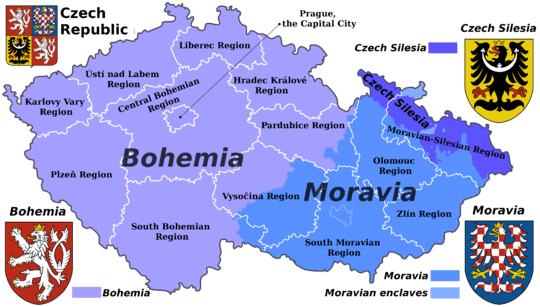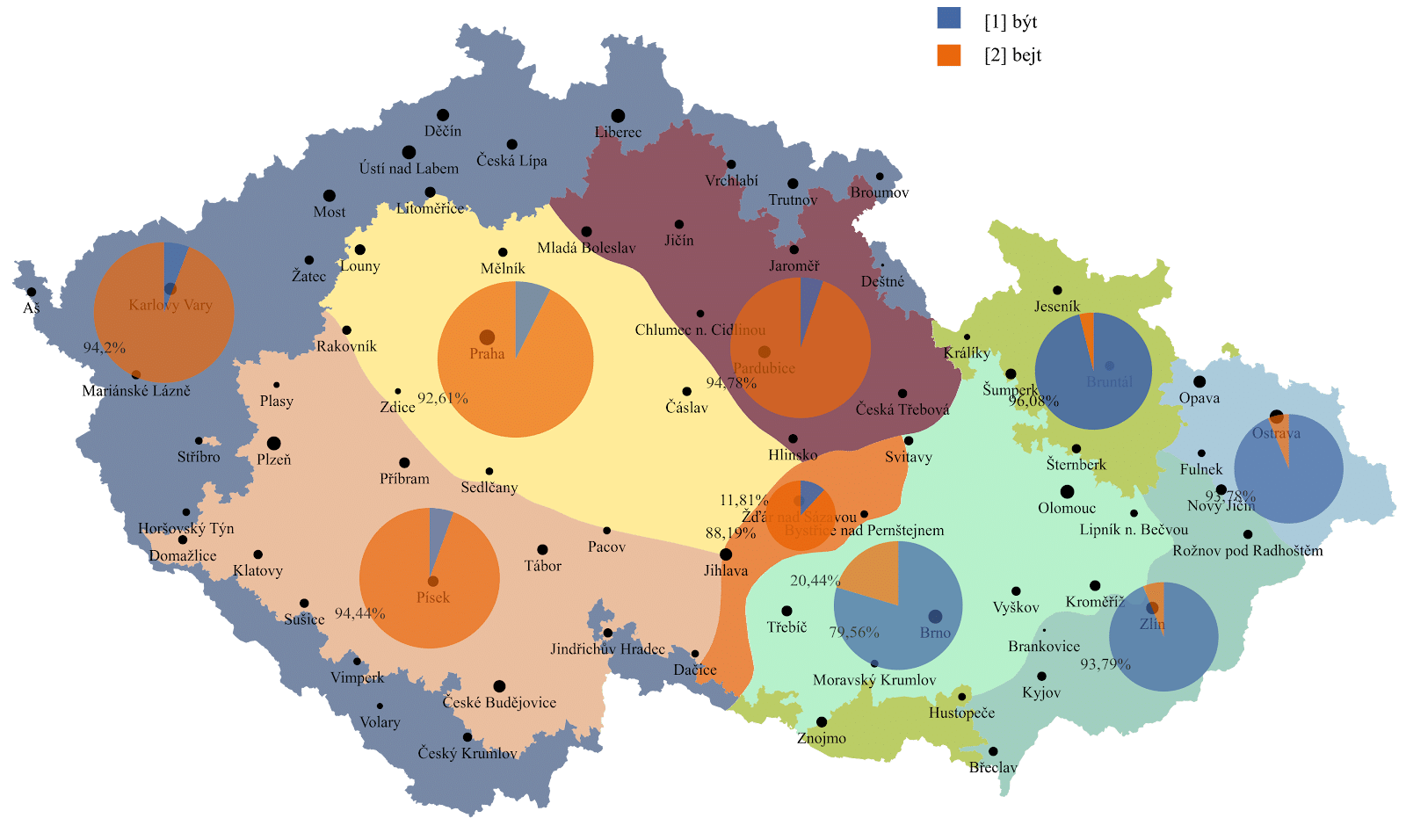1.10 – Colloquial Pronunciation (ý → ej)
Jsem už starej dědek.
I’m already an old fogey.
In the Radio Praha story Not So Golden Oldies, we encountered this phrase. But wait, what kind of ending on that adjective is -ej? Isn’t the ending we learned -ý?
Turns out it’s both. In colloquial Czech in Bohemia and some parts of Moravia (see map below), you tend to get -ej- where the standard language has -ý-. So you’ll run into things like:
velkej byt (instead of velký byt)
‘large apartment’
malej kluk (instead of malý kluk)
‘small boy’
The following explanation is meant to help with some of the colloquial dialect forms we’ll be encountering all throughout Czech class. You will hardly go much time in country or watching movies/television without hearing these dialectal differences.
Czech Regions
In the colloquial language of Bohemian and some Moravian speakers (see map below) the sound ý is frequently pronounced as ej. The graphic below (source: https://syd.korpus.cz/) depicts the distribution of pronunciations být ‘to be’(Standard Czech) and bejt ‘to be (colloquial)’ (Colloquial Czech). As you can see, for a large portion of the Czech Republic, speakers will typically say ej instead of ý.
We recommend that you learn these passively and be aware of them. Speaking using dialect forms as a beginning learner can make your speech sound a bit strange and unnatural. However, you will hear them and should at least be passively familiar with them.
Images used in this document come from these sources.

